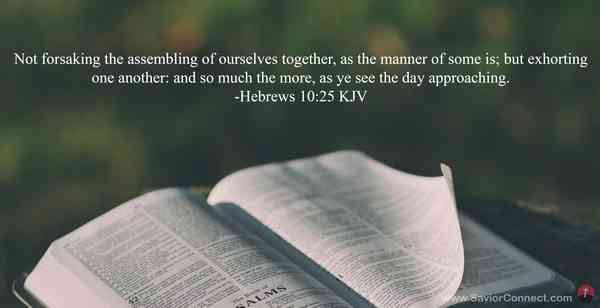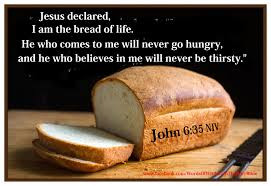
BY PROSPER TINGINI
Man is at odds with the Lord our God, with Jesus Christ being falsely implicated in those matters.
The Lord spoke to prophet Jeremiah, to warn the people (Jeremiah 10:3-5); “For the customs of the people are false. A tree from the forest is cut down, and worked with an axe by the hands of a craftsman.Men deck it with silver and gold; they fasten it with hammer and nails so that it cannot move, like scarecrows in a cucumber field, and they cannot speak; they have to be carried for they cannot walk”. This is indeed the prophecy of the Christmas festivities; no doubt.
Amos 5:21 reads: “I hate, I despise your feasts, and I take no delight in your solemn assemblies.”
There has been a systematic manipulation of God’s prescribed and sanctified festivals to suit particular beliefs. Clearly defined holy days have either been redesigned by man or vanquished from our religious calendars. Some arguments have been advanced to deflect our compliance. Misguided people have put forward the notion that some of the sacred days or festivals were purely just meant for the Jews and not for everyone else. If this is the case, then it would also translate to mean that the God we worship is specifically for the children of Israel, and not for us all.
The Sabbath was the first holy day proclaimed by the Lord, in honour of the day He rested from His works of creation. He worked for six days and rested on the seventh day, which He then declared as a rest holiday. It is the numbers of the days worked from onset that determines the Sabbath, not of the Roman calendar with its pagan gods-named days. As long as any social community or religious group aligns its working days to a frequency of six, then the seventh day of the particular sequence denotes the Sabbath. There doesn’t have to be any universal uniformity on that matter.
The Lord also sanctified another Sabbath for the 10th day of the seventh month of the yearly calendar, regardless of the numbers of the months for any distinct annual period. In Leviticus 16:29-31, the Lord also declared, “It shall be a statute to you forever that in the seventh month, on the tenth day of the month, you shall afflict yourselves, and shall do no work, either the native or the stranger who sojourns among you; for on this day shall atonement be made for you, to cleanse you; from all your sins you shall be clean before the Lord. It is a Sabbath of solemn rest to you, and you shall afflict yourself; it is a statute forever.” Our scriptures have termed this day as “Day of Atonement”, yet in our Christian calendars this particular day has been erased. God clearly states that this day is meant for us all.
There is another Sabbath dedicated for the sanctity of the land that feeds us; of our fields. It is ‘The Sabbath of Land; or The Resting of the Fields’. In Leviticus 25:1-7, God explained of the Sabbath, “Say to the people, when you come into the land which I give you, the land shall keep a Sabbath to the Lord. Six years you shall sow your field, and six years you shall prune your vineyard, and gather in its fruits; but in the seventh year there shall be a Sabbath of solemn rest for the land, a Sabbath to the Lord, you shall not sow your field nor prune your vineyard. What grows of itself in that seventh year you shall not reap, and the grapes of your undressed vine you shall not gather; it shall be a year of solemn rest for the land. The Sabbath of the land shall provide food for you, for yourself and for your male and female servants, whether hired or the ‘foreigners’ who are living with you, for your cattle also and for the beasts that are in your land. All its yields shall be for food.”
- Chamisa under fire over US$120K donation
- Mavhunga puts DeMbare into Chibuku quarterfinals
- Pension funds bet on Cabora Bassa oilfields
- Councils defy govt fire tender directive
Keep Reading
Some of us Christians would want to hide behind Jesus Christ to unashamedly say that the coming of Christ erased the need for us to be tied to these sacred days and festivals. The “Son” observed them, in accordance with the God-given instructions. It was during his observance of the Passover that Christ told his apostles to drink of his blood (wine) and to eat of his flesh (bread). Telling us that Jesus saved us from the yoke of observing the proclaimed holy days or festivals is a blasphemy.
Of the Passover festival; God spoke (Exodus 12:14): “This day shall be for you a memorial day and you shall keep it as a feast to the Lord; throughout your generations you shall observe it as an ordinance forever”. And the Lord added, in verse 49; “There shall be one law for the native and for the strangers who dwell among you”. He again specified the month (Exodus 12:1), “This month shall be for you the beginning of the months, it shall be the first month of the year for you.”
Our Christian calendar not only substituted the Passover festivities with the pagan-named Easter holidays, but further screwed on when they should take place. End of March or early April are now the preferred dates, in contravention of what the Lord specified. He directed (Exodus 12:3-7); “Tell all the congregation, that on the tenth day of this first month, they shall take every man a lamb according to their father’s houses, … and you shall keep it until the 14th day of this month, when the whole congregation shall kill their lambs in the evening.” Our Christian argument is that Jesus Christ replaces the lamb, thus deleting the Passover festivities from our calendars.
There is also a festival known as the Feast of Harvests or the Feast of Weeks. This is meant to be a celebration of offering to the Lord our God, as a form of thanksgiving for the blessings of the harvests. Deuteronomy 16:9-12 reads of the words of God, “You shall count seven weeks; begin to count the seven weeks from the time you first put the sickle to the standing grain. Then you shall keep the feast of weeks to the Lord our God with the tribute of freewill offering from your hand, which you shall give as the Lord your God blesses you; and you shall rejoice before the Lord your God, you and your sons and your daughters, your man servants, the priest who is within your towns, the sojourners, the fatherless and the widows who are among you …, and you shall be mindful to observe these statutes.”
There is also another correspondence festival of the harvests known as the Feast of Booths or Feast of Ingathering. Deuteronomy 16:13-15 reads of the words of God, “You shall keep the booths seven days, when you make your ingathering from your threshing floor and your wine press: you shall rejoice in your feast, you and your sons, daughters, servants, the priest, the sojourner, the fatherless and the widows who are within your towns. For seven days you shall keep the feast to the Lord your God at the place which the Lord your God will choose, so that the Lord your God will bless you in all your produce and in all the work of your hands, so that you will be altogether joyful.” Amen.
- Prosper Tingini is the Scribe of the Children of God Missionary Assembly – God’s messengers. Contact details: Mobile & whatsapp: 0771 260 195. Email address: [email protected]











